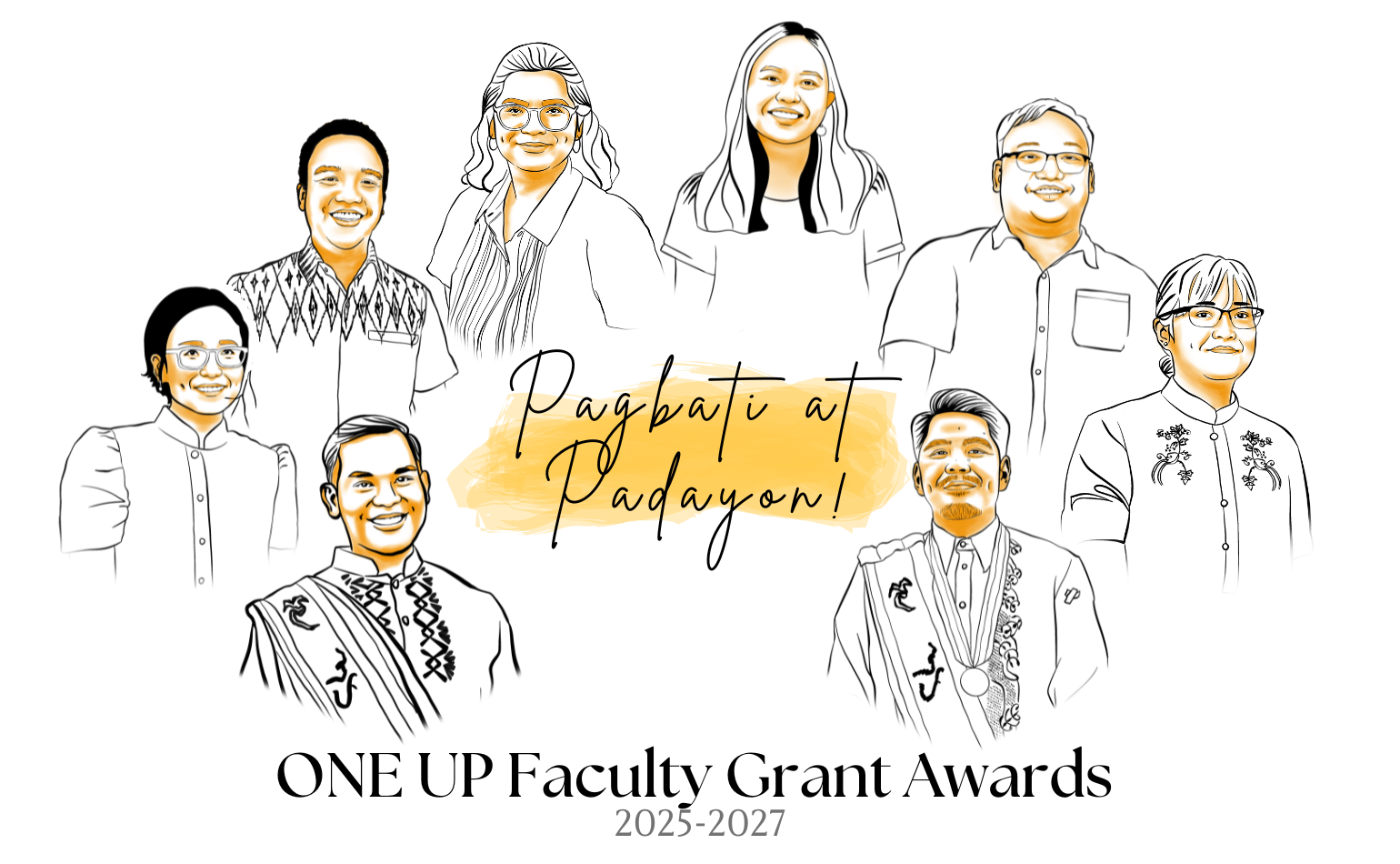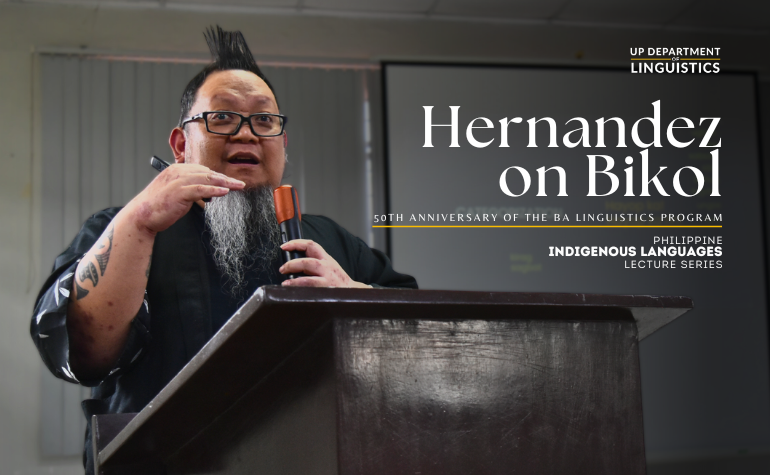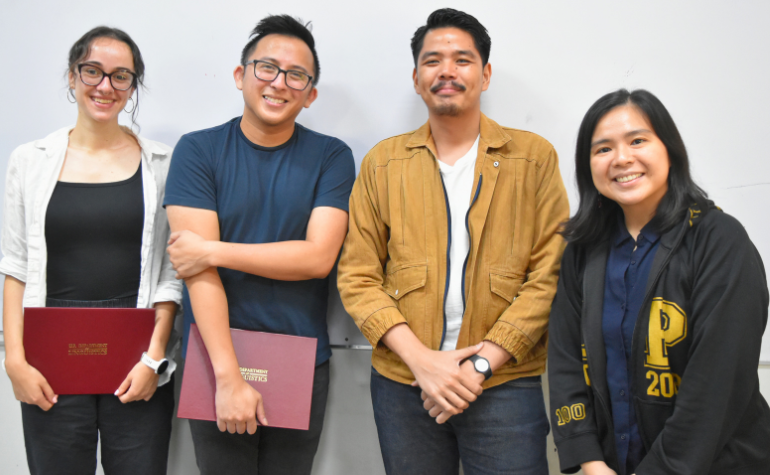
Visiting Research Fellows Dr. Jed Pizarro-Guevara and Alessa Farinella of the University of Massachusetts (UMass) Amherst gave back-to-back installments of the 2024 Linguistics Special Lecture Series (LSLS) last 30 July at Palma Hall 1323.
The curious case of Tagalog intonation
Farinella, a PhD student at UMass, started her lecture by explaining that her current study is a “building block” of her doctorate dissertation. The talk covered initial analysis of data gathered from her August to September 2023 field experiment at UP Diliman, which examines one of the least-studied components of grammar, intonation.
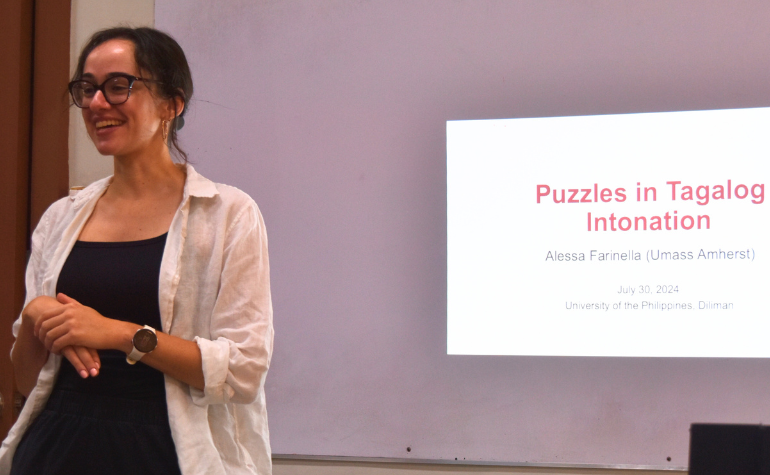
In “Puzzles in Tagalog intonation,” some of the challenges in analyzing this part of language were laid out. “One striking apparent feature of Tagalog intonation is that there is a consistent tonal melody which shows variability in terms of its association to word level prominence. Sometimes tones ignore word level prominence and appear to demarcate phrasal boundaries, but occasionally, tones appear to target word level stress.” This observed phenomenon is “typologically unusual,” as languages typically exhibit one pattern.
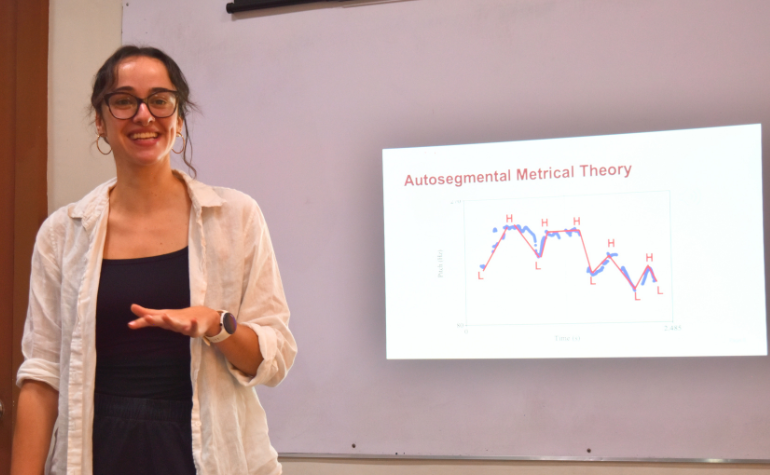
Another interesting pattern in Tagalog intonation, as Farinella explains, is a “downstep which marks the beginning of a new prosodic phrase.” Although it has been consistently observed in the preliminary data, it “is not always present.”
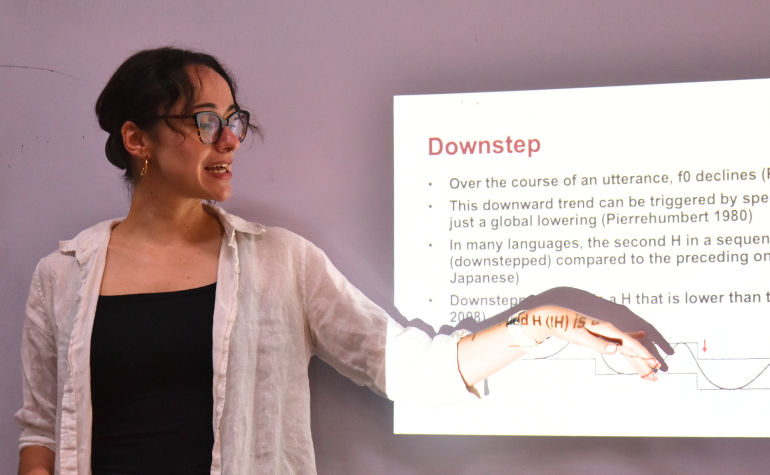
In the open forum after the talk, questions on individual speaker patterns, elicitation material, corpora, and the Observer’s Paradox were raised.
Are Tagalog reflexives typologically special or not?
Dr. Pizarro-Guevara’s presentation, “What we know about forming linguistic dependencies in real-time (and what reflexive processing in Tagalog can tell us about it),” is a continuation of his August 2023 and March 2024 experiments at UP Diliman, as well as his first 2024 LSLS earlier this year.
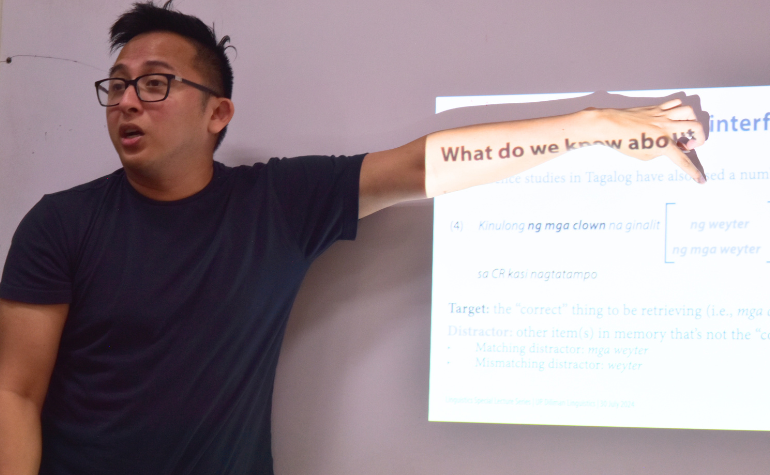
The study, co-authored with Brian Dillon (University of Massachusetts Amherst), investigates how Tagalog reflexives–which contain sarili + a pronoun–are processed by native speakers in real-time. It utilizes the (mis)match paradigm, where additional noun phrases (NPs) which might be possible antecedents (but do not share all of the required semantic features with the pronoun in order to be grammatical) are included in the sentence, affecting retrieval.
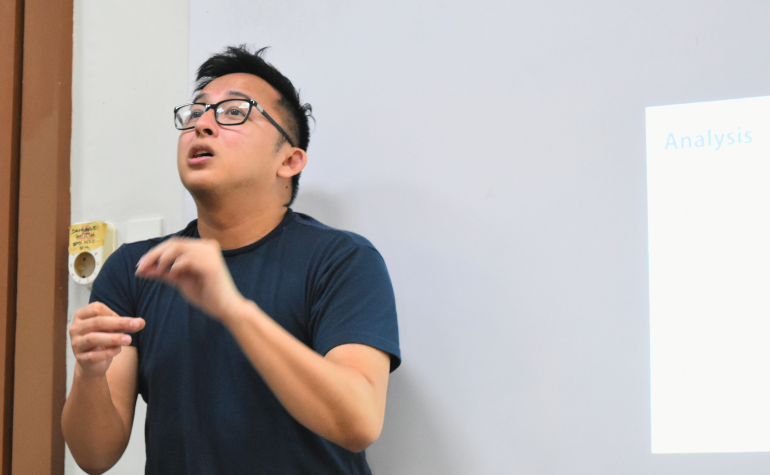
As with the previous experiment earlier this year, results from this study can inform cue-based retrieval, a psycholinguistic model of how linguistic dependencies are formed.
Near the conclusion of the talk, Dr. Pizarro-Guevara outlined some future directions for the study, which included the experiment which ran throughout this July.
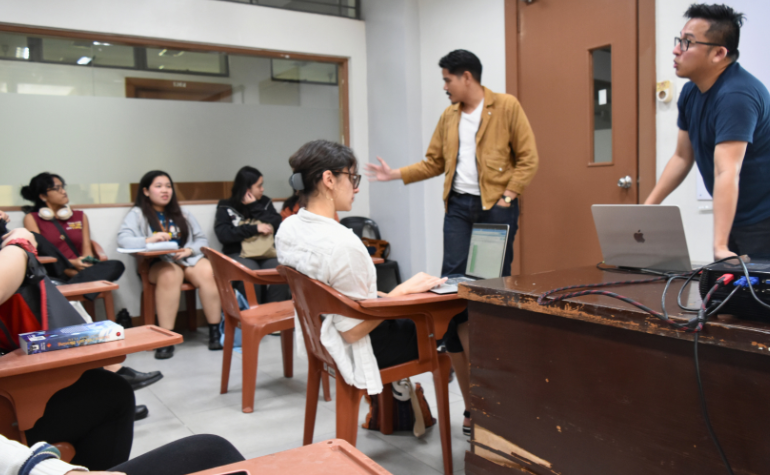
Students interested in the subfield may read previous features and articles related to the two visiting research fellows’ works, and tune in at the Department’s websites and social media pages to watch out for ongoing experiments on- and off-campus.
Published by UP Department of Linguistics

